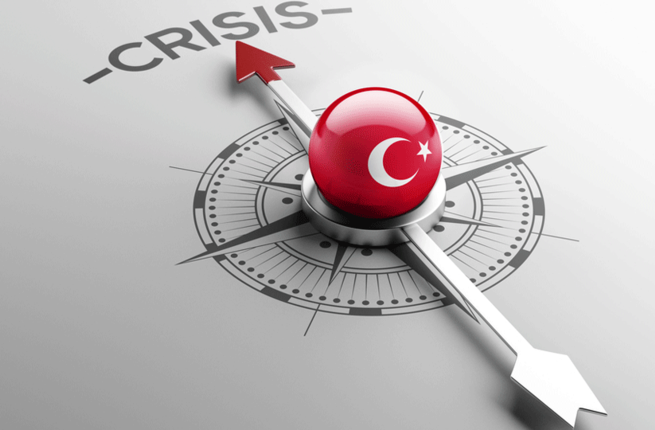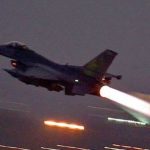Worryingly for Ankara, industrial output fell 6.4% and there are signs of more falls in the months ahead. (Shutterstock)
Turkey’s GDP was said to register a contraction of 2.4% in the first quarter of 2019, following a 3% decrease in the final quarter of 2018.
There have been warning signs the past few years about the state of Turkey’s economy. A series of government efforts to stimulate the economy following the 2016 coup attempt is said to have overheated the economy.
The biggest challenge, however, has been trying to calm volatility in markets where investor confidence slumped as the Turkish lira depreciated to all-time lows. The past year has seen the Turkish lira lose approximately one-third of its value against the US dollar.
Political strains with the United States have not helped Turkey, which was widely regarded for its economic performance over the past decade.
In August 2018, US President Donald Trump doubled tariffs on Turkish steel and aluminium imports amid a diplomatic stand-off over the detention of American pastor Andrew Brunson. In January, Trump threatened to economically devastate Turkey if it sent its military into Syria after Kurdish militias that have been erstwhile allies of the United States against the Islamic State.
With mayoral and municipal elections on March 31, bad news about the economy will be unhelpful for Turkish President Recep Tayyip Erdogan and his ruling Justice and Development Party (AKP). Their dominance in the domestic political arena has hinged on delivering strong economic growth and rapid infrastructure development.
Turkish Finance Minister Berat Albayrak has said the worst of the economic crisis is over. That may be true but it doesn’t necessarily mean the crisis is over.
Turkey registered 2.6% GDP growth in 2018 despite a contraction in the year’s final quarter. However, that reflected a sharp downturn against the 7.4% growth achieved in 2017.
The Organisation for Economic Co-operation and Development said economic contraction will persist this year in Turkey with a rebound expected in 2020. Such assessments indicate the difficult scenario that Turkey finds itself in, which is unprecedented in the Erdogan era.
The lira’s plummeting value has hurt industrial confidence and triggered record-breaking inflation, which hit a 15-year high in October 2018 when it touched 25%. The Central Bank of Turkey has aimed to calm volatility and get a grip on inflation through monetary controls, with benchmark interest rates reaching 24% last September.
Those moves have come at the cost of dampening subdued consumer spending and also hit the corporate sector — much of whose debt is foreign currency-denominated — at the worst time.
Bank lending has plunged and housing finance dived 81% in November. Recent figures indicate construction shrunk 8.7% as a contributor to GDP year on year, signalling a cooling of the building boom of recent years.
Worryingly for Ankara, industrial output fell 6.4% and there are signs of more falls in the months ahead. A depreciated lira has given Turkish exports, which have risen 5%, a slight boost but domestic consumption is falling.
With imports becoming more expensive — so far this year they may have fallen as much as one-quarter — Turkey’s current account deficit has improved but softening demand could be an indicator that industrial output is heading the wrong way.
Erdogan’s AKP is expected to maintain its grip on power in the upcoming elections, although voters in urban centres could be more motivated than in recent years to try alternatives.
The implications of Turkey’s ongoing and impending economic woes, however, go beyond the local elections. Erdogan’s narrative of Turkey being under economic attack from detractors in the shadows is a persuasive argument for much of his support base but the months ahead will see added pressures on Turkey’s economy, drawing attention to its ties with key trading partners.
The diplomatic reset between Europe and Turkey needs more time to repair damage caused by both sides. The European Parliament voted to suspend accession talks with Turkey following a human rights and rule of law report critical of Ankara, potentially undoing some confidence-rebuilding recently undertaken.
Additionally, Turkey’s options in Syria and how to approach its dilemma over Syrian-Kurdish militias, its purchase of Russia’s S-400 air defence systems and the related blocking of the F-35 aircraft deliveries to the Turkish Air Force mean there may be more political storms and stand-offs ahead that could lower international confidence and delay Turkey’s economic turnaround.



